 January 31, 2009 - Cigarette consumption in Hong Kong is up almost 14 percent in Hong Kong since a smoking ban was introduced in the city two years ago, a news report said Saturday.
January 31, 2009 - Cigarette consumption in Hong Kong is up almost 14 percent in Hong Kong since a smoking ban was introduced in the city two years ago, a news report said Saturday.
Government figures quoted by the South China Morning Post show that 3.79 billion cigarettes were bought in 2008, compared to 3.33 billion the previous year.
Anti-smoking campaigners quoted by the newspaper said they wanted taxes on cigarettes in the city of 6.9 million raised significantly in the government's annual budget in order to reverse the trend.
A pack of cigarettes in Hong Kong costs an average of 30 Hong Kong dollars (3.86 US dollars), about half the price of a pack in Singapore and Australia.
Smoking was banned in restaurants and bars in Hong Kong in 2006, but karaoke bars, nightclubs and thousands of bars that don't serve food were granted exemptions until July 2009.
Reference:
Cigarette consumption up 14 per cent in Hong Kong since smoking ban, M & C Health News, 1/30/2009.
Related news briefs: Hong Kong - public smoking ban - smoking rooms??; More on Philip Morris International of the Future...
Click on image to enlarge..
Read more...
Bringing the World of Tobacco Control closer together..
Hong Kong - after smoking ban cigarette consumption up 14 percent..
Connecticut Cracks Down on Teen Smoking..
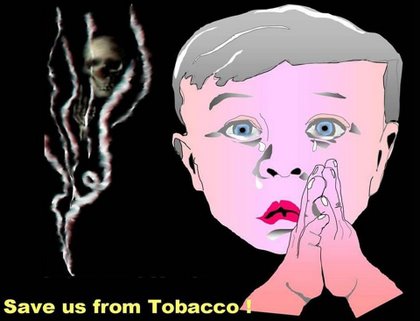
January 30, 2009 - Under a new law that went into effect this month, it is now unlawful for anyone in CT under the age of 18 to use, smoke or possess smoking products in a public place, including chewing tobacco. The violation carries a fine of $50 for the first offense and a $100 fine for further offenses. Minors who purchase or misrepresent their age to purchase tobacco can be fined $50 for the first offense and $100 for further offenses. And last year, selling or giving tobacco products to a minor began carrying a $200 infraction for the first offense, $350 for the second offense and a $500 infraction for further offenses.
According to the Connecticut Department of Public Health and the American Lung Association (ALA), almost 90 percent of adult smokers start before age 18. It’s crucial to reach potential smokers in grade school and middle and high school with more strict laws and prevention programs. Since the best way to stop smoking is to never start, anything that deters kids from starting the habit is good news to us.
Tobacco & Connecticut.
Reference: Connecticut Cracks Down on Teen Smoking, Botvin LifeSkills Training, 1/23/2009; The good and bad news about smoking, Staff Reports, New Canaan News, 1/29/2009.
Read more...
Swedish Match Longhorn MST sponsor NASCAR events..

 January 31, 2009 - Swedish Match North America and Kevin Harvick Inc. (KHI) announced today that Longhorn, the fastest growing moist snuff in the country (Longhorn had a category growth of 33% over the past two years vs. 20% and 21% for its competitors. - Nielsen data, 2007-2008), will be the primary sponsor of the No. 33 Chevrolet Silverado driven by three-time NASCAR Camping World Truck Series (NCWTS)champion Ron Hornaday. The Longhorn colors will be featured on No. 33 for 10 of the 25 race events in 2009.
January 31, 2009 - Swedish Match North America and Kevin Harvick Inc. (KHI) announced today that Longhorn, the fastest growing moist snuff in the country (Longhorn had a category growth of 33% over the past two years vs. 20% and 21% for its competitors. - Nielsen data, 2007-2008), will be the primary sponsor of the No. 33 Chevrolet Silverado driven by three-time NASCAR Camping World Truck Series (NCWTS)champion Ron Hornaday. The Longhorn colors will be featured on No. 33 for 10 of the 25 race events in 2009.
Longhorn racing outfit drivers will wear.
Charlie Kivett, Brand Manager for Longhorn: "This is an exciting partnership for us, NASCAR events are some of the highest attended sporting events in the U.S. NASCAR fans are also very responsive to NASCAR sponsors and we see this as a wonderful opportunity to acquaint them with the Longhorn brand."
Swedish Match is not subject to the same restraints on marketing as USST makers of Skoal and Copenhagen and cigarette manufacturers since they did not sign onto the tobacco master settlement agreement (MSA).
Swedish Match (Svenska Tandsticks) has not signed onto the Smokeless Tobacco Master Settlement Agreement (STMSA) U.S. Smokeless Tobacco (USST) is the only signatory. The states have approached Swedish Match several times about joining the STMSA, but SM always responds that it voluntarily adheres to the marketing and advertising restrictions in the STMSA.
Related news brief: Swedish Match (SM) - second quarter 2008 tax free sales increased..; Swedish Match's (SM) Red Man Premium Moist Snuff hiding under the radar..
References: Longhorn Moist Snuff Teams with Kevin Harvick Inc. for the 2009 Season, Reuters, 1/20/2009; Longhorn Moist Snuff Teams with Kevin Harvick Inc. for the 2009 Season, Yahoo Finance, 1/20/2009.
Read more...
February 2009 - legislation FDA to regulate tobacco..
 January 30, 2009 - Democrats are planning a new initiative to give the Food and Drug Administration (FDA) the power to regulate tobacco. Rep. Henry Waxman (D-Calif.), chairman of the House Energy and Commerce Committee, said today he will introduce the legislation next month to give the agency regulatory control over tobacco. Waxman revealed the plan during an interview with MedPage Today following a Families USA briefing on healthcare issues facing the new congress.
January 30, 2009 - Democrats are planning a new initiative to give the Food and Drug Administration (FDA) the power to regulate tobacco. Rep. Henry Waxman (D-Calif.), chairman of the House Energy and Commerce Committee, said today he will introduce the legislation next month to give the agency regulatory control over tobacco. Waxman revealed the plan during an interview with MedPage Today following a Families USA briefing on healthcare issues facing the new congress.
Citi on Friday, January 30, 2009 said that if the FDA begins to regulate the tobacco industry, it would make little difference to shareholders, though it would be unhelpful for sentiment. "Europe has most of the regulations that are proposed already in place, and profitability and volume trends are remarkably similar to those seen in the U.S.," it wrote. Rep. Henry Waxman of California is expected to introduce a bill ensuring that the tobacco industry is regulated by the FDA, a bill Citi expects to pass. Citi said that the bill could lead to a ban on menthol, an action it said could hurt Lorillard (LO.N), which makes more than 97 percent of its earnings before interest and taxes from its menthol-flavored Newports. For the company, "this is potentially a big issue and is certainly likely to create volatility. However, we don't believe that it is practical to ban menthol, which currently makes up about 29 percent of the U.S. cigarette market," it wrote.
Regulation of the tobacco industry is absolutely necessary but let's do it RIGHT this time. It's time to take another look with less input from the major company (Altria controls over half of the U.S. tobacco market) congress is trying to regulate. We learn that the existing bill is a result of face-to-face negotiating sessions and conference calls that were so sensitive that Philip Morris and the Campaign for Tobacco Free Kids refused to tell even their closest allies. As Senator Michael B. Enzi (R-WY) has pointed out, "Poison peddlers shouldn’t get to decide how we as responsible legislators fight the war against their deadly products."
Reference: Waxman Plans New Push for FDA Control of Tobacco by Emily P. Walker, Washington Correspondent, MedPage Today, 1/29/2009; 30Jan2009-Citi: FDA regulation of tobacco co's won't matter, Reuters Messaging: ryan.vlastelica.reuters.com@reuters.net, 1/30/2009.
Read more...
U.S. Senate's Version of the Economic Stimulus Bill Includes $75 million for smoking cessation..
 January 30, 2009 - Smoking cessation programs make up $75 million of the economic stimulus bill making its way through the Senate, according to Sen. Tom Harkin, D-Iowa, who sponsored the funding. His office says smoking causes $110 billion in health costs each year. Harkin said the programs were an attempt to bolster the economy by lowering the soaring health-care costs smoking causes each year. His office cited figures that smoking is the leading cause of preventable deaths and causes $110 billion in health costs every year.
January 30, 2009 - Smoking cessation programs make up $75 million of the economic stimulus bill making its way through the Senate, according to Sen. Tom Harkin, D-Iowa, who sponsored the funding. His office says smoking causes $110 billion in health costs each year. Harkin said the programs were an attempt to bolster the economy by lowering the soaring health-care costs smoking causes each year. His office cited figures that smoking is the leading cause of preventable deaths and causes $110 billion in health costs every year.
The money will be used to bolster existing anti-smoking campaigns run by the Department of Health and Human Services and to buy new equipment at the Centers for Disease Control and Prevention, which tests the contents of cigarettes. Harkin's office cited figures that smoking is the leading cause of preventable deaths and causes $110 billion in heath costs every year.
Harkin believes prevention will go a long way to boosting the health of Americans while boosting health of the American economy.
The U.S. House on Wednesday evening passed the $819 billion economic stimulus package on a party-line vote, despite President Barack Obama's efforts to achieve bipartisan support for the bill. The final vote was 244 to 188. No Republicans voted for the bill, while 11 Democrats voted against it. The Senate is likely to take up the bill next week.
Senate’s Economic Stimulus Package..
Reference: Senate stimulus bill would fund stop-smoking programs from Ted Barrett CNN Congressional Producer, CNN Politics.com
Read more...
Mississippi - tobacco tax increase may pass this time..
 January 30, 2009 - Senate, which is where the cigarette tax increase died last session, voted Thursday 42-7 margin to boost the tax 31 cents per pack to 49 cents.
January 30, 2009 - Senate, which is where the cigarette tax increase died last session, voted Thursday 42-7 margin to boost the tax 31 cents per pack to 49 cents.
Earlier this session, the House approved an 82-cent increase to $1 per pack. The legislation now goes back to the House, where it can accept the Senate proposal or invite negotiations.
In recent years, the House has passed a cigarette tax increase, but it has been killed by the Republican leadership in the Senate or by Gov. Haley Barbour. With state tax collections dipping because of the poor economy, Barbour and the Senate leadership have voiced support for a cigarette tax increase.
Under the Senate bill, the $25 million generated this year (if enacted by March 1,2009) would be used to replenish a fund that helps local governments cut the cost of motor vehicle tags. The House has voiced support for using the tobacco tax money to offset education cuts.
Reference: Senate approves cigarette tax hikeby BOBBY HARRISON, Daily Journal Jackson Bureau, 1/30/2009.
Related news brief: U.S. States Considering Tobacco Tax Increase..; Mississippi the poorest state in the union.."; States Need Quick Influx of Revenue – Think Tobacco Tax...
Read more...
Virginia House Finance Committee defeats tobacco tax increase..

January 30, 2009 - The Virginia House Finance Committee defeated (by a vote of 8 to 2) a proposal by Gov. Timothy M. Kaine (D) to double the tax on cigarettes in a state. Both Republicans and Democrats said they oppose raising taxes on a single industry during tight economic times, especially when that industry provides the state with so much money. The Senate will vote on an identical bill next week, leaving open the possibility that the legislature's budget negotiators could still consider the tobacco tax as a source of revenue for the state's cash-starved $77 billion, two-year budget.
If legislators reject the idea of raising the state's tax on cigarettes from 30 to 60 cents per pack, they will have to find another way to come up with $148 million to pay for Medicaid at a time when the state faces a shortfall of at least $2.9 billion.
Del. James P. Massie III (R-Henrico) said he was opposed for several reasons, including wanting to protect one of the world's largest cigarette makers, Philip Morris, which in recent years has moved its headquarters to Richmond and opened a research center there. Tobacco was once the foundation of Virginia's economy, and the state is still home to thousands of tobacco farms. Altria, the parent company of Philip Morris, employs more than 5,000 workers.
Altria spokesman Bill Phelps: "We continue to believe that the tax . . . could negatively impact Virginia manufacturers and tobacco growers and retailers and the jobs that they provide."
Virginia House Finance Committee defeats tobacco tax increase..
Reference: House Panel Rejects Bill To Hike Tax On Cigarettes Kaine Sought to Double Levy to 60 Cents a Pack by Anita Kumar, Washington Post Staff Writer, 1/29/2009.
Related news briefs: Virginia - cigarette sales declined after tax hikes..; Virginia Governor Kaine Proposes a 30 cent tax increase in cigarette tax..; States Need Quick Influx of Revenue – Think Tobacco Tax...
Read more...
Malaysia - slowdown in cigarette consumption..

January 30, 2009 - According to statistics by the Confederation of Malaysian Tobacco Manufacturers, the overall industry volume in the first three quarters of 2008 dropped 2.2% from the same period a year earlier. With most markets sliding into an economic downturn, the Philip Morris (Malaysia) Sdn Bhd managing director Ilwoo Chong said the industry could see a slowdown in cigarette consumption.
"The Asian market is not a growing market. For Malaysia, it has come to a point where (growth) would be stagnant," Chong told The Edge Financial Daily.
Another player, British American Tobacco (M) Bhd (BAT), has been quoted as saying cigarette sales volumes would face pressure as hefty tax imposed on the industry would lead to price jumps. Also, another challenge starting this month is that cigarette packs sold in the country would have to bear pictorial warnings to discourage smoking.
Also, the Health Ministry was reported to consider plans to increase no-smoking zones.
With the introduction of the RM6 floor price (minimum pricing of RM6 for a pack of 20-cigarettes), the retail price difference between the Big Three brands and the extremely low-priced cigarettes (ELPC) would be reduced to as little as 50 sen per pack of 20s from a difference of RM2 to RM3.50 per pack. The ELPC brands had been steadily gaining market share as tax imposed on the tobacco firms led to more expensive cigarettes. From a market share of 2.5% in 2005, ELPC has raised its market share to 8% as at the second quarter of last year, according to a report by Maybank Investment Bank Bhd.
For the industry players, however, a bigger concern was the increase in illicit cigarettes. According to Chong, illicit cigarettes account for about 25% of industry share last year from 14% five years ago. The World Bank has stated that price differences between countries or states would clearly give rise the incentive to smuggle cigarettes.
Reference: 28-01-2009: Slowdown in cigarette consumption, says Philip Morris
by Lim Shie-Lynn, The Edge Daily, 1/28/2009.
Read more...
U.S. Senate passes SCHIP..
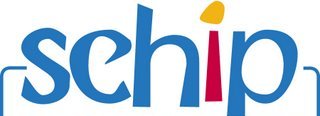
January 29, 2009 - The U.S. Senate has passed the Children’s Health Insurance Program Reauthorization Act (S. 275) by a vote of 66 to 32. The legislation will now go to a conference with House and Senate negotiators to work out the differences in their two bills.
The bill would expand the existing coverage of roughly 6.7 million children under the State Children's Health Insurance Program (SCHIP)program to include an additional 3.9 million. It would provide around $31.5 billion in funding for the program and reauthorize it through September of 2013.
The goal of the SCHIP program is to provide health insurance to low-income children whose families do not make enough money for private coverage but make too much for Medicaid.
This legislation is paid for mainly by a sixty-one cent increase in the federal tax on cigarettes as well as other tax increases on tobacco products.
Tax increase on tobacco products.
Reference: Senators Pass SCHIP Reauthorization Bill, Senatus, 1/29/2009.
Archive of Supporting Documentation: A final vote on SCHIP is expected today - Thursday, Janaury 29, 2009..; SCHIP federal tobacco tax increase will deter nearly 1.9 million kids from using tobacco..; NATO - reauthorize SCHIP without imposing tax increases on tobacco products..; U.S. Senate Committee Votes to Expand SCHIP..; SCHIP Expansion approved by U.S. House of Representatives..; U.S. Congress gets ready to pass expansion of SCHIP..;
SCHIP expansion legislation time to try again..;
Congressional Democrats have scrapped plans for another vote on expansion of the SCHIP..
AWMA urges grassroots effort to defeat FDA tobacco regulation and SCHIP..
U.S. Federal tax increase on tobacco - try it again..
U.S. House fails to override SCHIP expansion veto..
Congress Sends An Extension of the SCHIP to President Bush..
Bush vetoes 2nd bill expanding the State Children's Health Insurance Program (SCHIP)...
Revised State Children's Health Insurance (S-CHIP) Bill..
Bush's SCHIP veto stands..
U.S. CONGRESS PASSES CHILDREN'S COVERAGE..
US edges closer to federal tax hike on tobacco products...
Lawmakers in Washington are working to reauthorize the State Children's Health Insurance Program (SCHIP) before it expires on September 30, 2007...
Read more...
PM USA - discontinues Marlboro Moist Snuff & revamps Marlboro Snus..

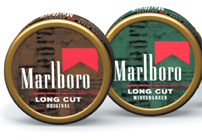
January 29, 2009 - In January 2009, Philip Morris (PM) USA announced that it was discontinuing the Marlboro MST - moist smokeless tobacco test market in Atlanta, Georgia and the surrounding counties. PM USA continues to believe the Marlboro brand has an important role to play in the smokeless tobacco category. PM USA is evaluating potential strategies and options for the Marlboro brand in light of Altria’s acquisition of UST’s smokeless tobacco business. Michael Szymanczyk on dropping Marlboro MST - we’re more focused on the new brands that we’ve acquired (from UST), and anything that we do in terms of Marlboro will ultimately take advantage of what we’ve acquired here with UST in the smokeless area; at least as it relates to MST.
PM USA has been test marketing Marlboro Snus, a spit-free, smokeless tobacco pouch alternative designed especially for adult smokers, in Dallas, Texas and in Indianapolis, Indiana. Based on our consumer-driven insights and learnings from those test markets, PM USA has revamped the Marlboro Snus concept with new packaging, product enhancements and pricing. In December 2008, PM USA announced that it was replacing the existing Marlboro Snus products in the Dallas and Indianapolis test markets with the redesigned product, as well as expanding into a new test market in Arizona during the first quarter of 2009.
Michael Szymanczyk (Chairman, Chief Exec. Officer, Chairman of Exec. Committee, Chairman of Philip Morris USA Inc, Chief Exec. Officer of Philip Morris USA Inc and Pres of Philip Morris USA Inc - we thought Craig A. Johnson was President of PM USA, Inc.)- Relative to Marlboro Snus, you’re probably aware of the fact that we have really repositioned that product, reformulated it, and repackaged it. It’s really a whole new proposition. We’ve expanded the test market geography a bit out into the Southwest, as well as replaced—or in the process of replacing the existing product with the new product in the marketplace, and we continue to have optimism about Marlboro Snus as a product for the future. There’s no plan right now, relative to the UST Snus products (Skoal Dry now named Skoal snus). We’ve got to get involved in that and understand it better before we’ll make any decisions about it.
Altria Group, Inc. Q4 2008 Earnings Call Transcript, Seeking Alpha, 1/29/2009.
Marlboro Snus fact sheet.,
Read more...
In Process - Altria's 2008 Full Year & 4th Quarter Results.
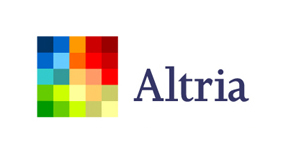
January 29, 2009
Michael E. Szymanczyk, Chairman and Chief Executive Officer of Altria. “In 2008, Altria successfully completed both the spin-off of PMI and a significant corporate restructuring, which included relocating our headquarters to Richmond, Virginia.”
“In early January of 2009, Altria completed the acquisition of UST, which transformed Altria into the premier tobacco company in the United States,” Mr. Szymanczyk said. “Our tobacco operating companies have four powerful brands, Marlboro, Copenhagen, Skoal and Black & Mild, which are leaders in the largest and most profitable domestic tobacco categories."
PM USA’s 2008 domestic cigarette shipment volume of 169.4 billion units was 3.2% lower than the prior-year period, and was estimated to be down approximately 4% when adjusted for changes in trade inventories and calendar differences. For the fourth quarter of 2008, PM USA’s domestic cigarette shipment volume of 40.8 billion units was 2.1% lower than the prior-year period, and was estimated to be down approximately 3.5% when adjusted for changes in trade inventories.
For the full year 2008, PM USA’s retail cigarette share grew 0.1 share point to 50.7%, driven by Marlboro’s strong share gains. In 2008, Marlboro achieved record retail share as the brand gained 0.6 share points versus 2007 to 41.6% as shown in Table 6 below.
Marlboro achieved strong quarterly share results in the fourth quarter, gaining 0.4 share points to 41.6%. PM USA’s overall retail cigarette share declined 0.3 points versus the prior-year period to 50.4% Va Slims and Basic sales down..
Middleton’s 2008 cigar shipment volume grew 6.2% versus the prior-year period to 1.3 billion units. For the fourth quarter, Middleton’s cigar shipment volume increased 3.4% versus the prior-year period to 311 million units.
Cigars
Middleton achieved a 29.1% retail share of the machine-made large cigar segment in 2008, up 2.5 share points versus the prior-year period.1 Middleton’s share results were driven by Black & Mild, which increased its 2008 retail share by 2.8 share points versus the prior-year period to 28.3%. For the fourth quarter, Middleton’s retail share increased 2.9 share points to 30.5%, and Black & Mild’s retail share increased 3.1 share points to 29.6% versus the prior-year period.
Altria Group, Inc. Q4 2008 Earnings Call Transcript, Seeking Alpha, 1/29/2009.
Reference: Altria Reports 2008 Full Year and Fourth-Quarter ResultsYahoo Fiance, 1/29/2009.
Read more...
A final vote on SCHIP is expected today - Thursday, Janaury 29, 2009..
 January 29, 2009 - Senate Republicans fell short Wednesday, January 28, 2009 in their efforts to curtail the expansion of the State Children's Health Insurance Program (SCHIP), the government health insurance program for lower-income children, said the Associated Press.
January 29, 2009 - Senate Republicans fell short Wednesday, January 28, 2009 in their efforts to curtail the expansion of the State Children's Health Insurance Program (SCHIP), the government health insurance program for lower-income children, said the Associated Press.
Democrats defeated amendments that would have prohibited federal funding for coverage of children in families with incomes above $65,000, or the median state income; that would have not allowed federal funding to extend coverage to children of new legal immigrants; and that would have denied aid to groups that may be involved in abortion but also work on other health care issues abroad.
Senator Jim Webb (D-Va.) on Tuesday, January 27, 2009 introduced an amendment to the SCHIP bill, along with Senator Kay Hagan (D-NC) that would substitute the 61-cents-per-pack cigarette tax increase with a tax on carried interest, which are profits that hedge fund managers receive as compensation, according to the most recent PMAA News from Capitol Hill newsletter from the Petroleum Marketers Association of America. The amendment would subject cigarettes to a 37-cents-per-pack increase instead of the 61-cents-per-pack increase.
The lower tax would generate $11.2 billion in revenue over five years, said Webb. He argued that most of the states already impose and may raise their excise taxes on cigarettes, in addition to the currently proposed 39-cents-per-pack federal tax increase, which would burden lower-income households who are more likely to use tobacco products.
PMAA has talked to Webb's staff and is awaiting a response from Senate Majority Leader Harry Reid (D-Nev.) on the fate of the amendment, it said.
Other amendments that were considered.
Reference: Webb Champions Tobacco
Introduces SCHIP amendment to reduce cigarette tax increase by more than half, Convenience Store / Petroleum (CSP) Daily News, 1/29/2009 - the text of Senator Webb's amendment can be found.
Archive of Supporting Documentation: SCHIP federal tobacco tax increase will deter nearly 1.9 million kids from using tobacco..; NATO - reauthorize SCHIP without imposing tax increases on tobacco products..; U.S. Senate Committee Votes to Expand SCHIP..; SCHIP Expansion approved by U.S. House of Representatives..; U.S. Congress gets ready to pass expansion of SCHIP..;
SCHIP expansion legislation time to try again..;
Congressional Democrats have scrapped plans for another vote on expansion of the SCHIP..
AWMA urges grassroots effort to defeat FDA tobacco regulation and SCHIP..
U.S. Federal tax increase on tobacco - try it again..
U.S. House fails to override SCHIP expansion veto..
Congress Sends An Extension of the SCHIP to President Bush..
Bush vetoes 2nd bill expanding the State Children's Health Insurance Program (SCHIP)...
Revised State Children's Health Insurance (S-CHIP) Bill..
Bush's SCHIP veto stands..
U.S. CONGRESS PASSES CHILDREN'S COVERAGE..
US edges closer to federal tax hike on tobacco products...
Lawmakers in Washington are working to reauthorize the State Children's Health Insurance Program (SCHIP) before it expires on September 30, 2007...
Read more...
Jordan - law to ban smoking in public places - ENFORCEMENT..
 January 28, 2009 - According to the Director of the Primary Healthcare Directorate Adel Bilbeisi will enforce the law that prohibits smoking in public areas.
January 28, 2009 - According to the Director of the Primary Healthcare Directorate Adel Bilbeisi will enforce the law that prohibits smoking in public areas.
The law will be enforced by imposing a JD15-20 fine on those caught smoking in public facilities or a penalty of imprisonment ranging from one week to one-month. To enforce the smoking ban in these places, especially in government agencies, each institution will pick one of its employees as a law enforcement officer. Bilbeisi added that most of the malls have already started implementing the law, banning smoking in the premises. According to a Mecca Mall administrator, customers will always have priority.
One-third of Jordanians are smokers and the health ministry figures indicate that over 30 percent of school students smoke tobacco. According to the law, the ban includes hospitals, health care centers, schools, cinemas, theatres, libraries, museums, public and nongovernmental buildings, public transport vehicles, airports, closed playgrounds, lecture halls and any other location to be determined by the health minister.
Also, the Ministry of Health has banned the import of "electronic cigarettes." The ministry cited "a higher percentage of nicotine" used in the device following the suit of the World Health Organization which had previously warned against its use.
Reference: Jordan - Ministry firm on anti-smoking law enforcement, Jordan Times, 1/28/2009; Getting Serious About A Smoking Ban In Jordan, black-iris.com, 9/28/2008
WHO Framework Convention on Tobacco Control (FCTC) Treaty.
Read more...
In Process - Comments..
January 28, 2009 -
A few comments on article. Tobacco Road Takes a Turn to the Smokeless by Kevin Helliker, The Wall Street Journal, 1/27/2009.
Critical - no mention of children main resource exposure to these tobacco products.
In these tough economic times, it is more important than ever that we redouble efforts to care for our nation’s most precious resources: its children.
avoid the temptation of tobacco avoid nicotine addiction never able to reach their full potential..
Sales of Snus (Swedish moist snuff) have failed just about everywhere in the where it has been marketed except in Sweden and Norway. In Sweden snus has been used for over 200 years it's a tradition - part of their culture. In Norway (not an EU member) to hook kids on Snus Swedish Match produced a starter kit consisting of various Snus pouches flavored with various fruit flavors.
Sales of Camel SNUS has failed miserably in Raleigh, NC - c-store owners are having a hard time giving the stuff away. R.J. Reynolds has tried every gimmick imaginable to get people to try the stuff without success. The vast majority of results from other c-stores located in cities where the product has been marketed show simlar results. This is not only true for Camel Snus but Marlboro Snus and even in Canada with Imperial of Canada's duMariner test marketed in Edmonton and Ottawa.
Amongst some snus enthusiasts Camel Snus is looked upon as somewhat less appetizing, maybe even a bit lowbrow—compared to Swedish brands like General made by Swedish Match. Camel Snus was first made in Sweden under contract, by British American Tobacco PLC, which owns 42 percent of Reynolds American. Then it was made in the Reynolds plant in Winston-Salem. and now by Reynolds at the Conwood plant in Clarkeville, TN. Camel Snus is a R.J. Reynolds Tobacco product not Conwoods.
Camel Snus is smoke-free and spit-free but users found fault (didn't care for) with the product in that the pouch still had to be disposed off. The dissolvables that Reynolds is now starting to test market have one extra perk - fully dissolve in the mouth. For snus to be spitless the placement in mouth of the pouch is critical if the pouch is moved around or placed in a different location more saliva will be produced increasing the urge to spit.
The European Union was so concerned that snus would appeal to kids they banned the product in all countries except Sweden. Initially the small bags of tobacco were banned in Britain in 1990 after the US Smokeless Tobacco company (now owned by Altria Group, Inc.) tried to introduce sweet-flavored tobacco capsules called Skoal Bandits. The ban was supplanted by EU-wide legislation in May, 1992. The legislation prohibited the placing on the market of tobacco for oral use; the primary reason "...products for oral use will be used above all by young people, thus leading to nicotine addiction..." . (The prohibition was introduced by Directive 92/41/EEC amending Directive 89/622/EEC.)
Certain public health professionals want inveterate (hard-nose, long established, deep-rooted) cigarette smokers to switch to Snus. But is this realistic - will inveterate smokers take time out to learn the art of Snusing. You can be sure - the group that will take time to experiment and learn the proper Snus sucking technique are young adults and kids that want to be young adults. If we let this happen we will end up with another generation of nicotine addicts - never able to reach their full potential. The taglines for Skoal Dry, "No Smoke, No Spit, No Boundaries" and Camel SNUS, "Pleasure for wherever!!" add more encouragement to give it a try.
Helliker in his article doesn't once mention children - our future leaders. Kids - enticed to try the stuff would become nicotine addicts never able to reach their full potential. We know he has a smart wife that was going to give him the boot if he didn't stop using tobacco.
Recent study - . In Sweden, many smokers quit smoking by switching to smokeless tobacco. But researchers didn’t find a similar effect among U.S. smokers. Murray Kessler ,former CEO of UST, Inc. (now Vice Chair, Altria Group, Inc.) Nine Out of Ten U.S. Smokers Who Try Smokeless Still Reject the Product..
efforts to communicate with adult consumers about the unique opportunity that very low-TSNA dissolvable smokeless tobacco offers to dependent smokers."
Note Star Scientific their products as very low-TSNA dissolvable smokeless tobacco. Dr. Stephen S. Hecht, an internationally recognized expert on cancer-causing agents in tobacco, points out even with the pasteurization process used for the Swedish tobacco products does produce lower levels of nitrosamines than found in most American products, but the levels are not low. They are still 10-100 times higher than the levels of carcinogenic nitrosamines in any other consumer product. (Communication 1/25/2007)
Morgan Stanley estimates that U.S. consumers spent $4.47 billion on smokeless tobacco in 2007 versus $78 billion on cigarettes. These numbers are worthwhile, we've been using numbers from 2005 $82 billion for cigarettes and for the smokeless tobacco category about $3.7 billion.
Growth in smokeless category has not come from the snus products but mainly from a Conwood price/value brand called Grizzly.
All tobacco products are bad.. nicotine itself has a number of severe adverse reaction like altering brain development in adolescents . The latest discovered in
found in document documents nicotine lowers the threshold for the onset vfib..
after all it's a rat poison
Read more...
Indonesia - tobacco farmers reject Islamic council's edict..
 January 28, 2009 - Indonesia's top Islamic body (Ulemas Council - MUI) decided on Sunday, Janaury 25, 2009 not to ban smoking for Muslims in a country which is the world fifth-largest tobacco market and Southeast Asia's biggest economy. The debate over smoking revealed a split between those wanting to make it "haram" (forbidden), or not allowed, and others who favoured "makruh" (objectionable), an Arabic term whereby it would only be advised that smoking is bad and it is better to drop it.
January 28, 2009 - Indonesia's top Islamic body (Ulemas Council - MUI) decided on Sunday, Janaury 25, 2009 not to ban smoking for Muslims in a country which is the world fifth-largest tobacco market and Southeast Asia's biggest economy. The debate over smoking revealed a split between those wanting to make it "haram" (forbidden), or not allowed, and others who favoured "makruh" (objectionable), an Arabic term whereby it would only be advised that smoking is bad and it is better to drop it.
The council issued a fatwa placing more limited restrictions on tobacco use. "MUI has issued an edict which states that smoking is forbidden for children, pregnant women, MUI members and for those in public places," Amin Suma, chairman of the Edict Commission of MUI said on Sunday.
Chairman of the Tobacco Farmers Association in Jember, Abdurrahman expressed regret here on Monday the MUI edict banned children and expecting mothers from smoking, as well as people in public places.
"Indirectly, the edict will affect people who want to smoke," he said adding that it would also affect the income of tobacco growers. He said that the MUI edict would not apply to smokers in Jember because the region has many tobacco growers.
Indonesia is a very confused nation when it comes to the health of their citizens.
Reference: Tobacco farmers reject MUI's edit, Antara New, 1/27/2009; TOBACCONIST OPPOSED TO MOSLEM SCHOLARS’ BAN ON SMOKING by Andi Abdussalam , 1/30/2009.
Related news briefs: Indonesia - Ulema Council - debate results is split on smoking..; Indonesia - Withdraw Sponsorhip of Another Rock Concert..; Indonesia to increase tax on tobacco products..; Semarang, Indonesia - Cigarette Smoking Areas to be Prepared..; Jakarta, Indonesia - Malls help enforce non-smoking ban..; Indonesia - federal anti-smoking laws in one year - MAYBE..; Indonesia - NGO's (non-government organizations) Demand the Government Ratify WHO's FCTC.; Indonesia to raise cigarette tax by 6 to 7% in 2009..; Surabaya, Indonesia - anti-smoking bylaw 10/2009 - FOR REAL??; Indonesians smoking more than ever before..; Indonesia further rise in the excise tax would hurt the cigarette industry..; Alicia Keys - Jakarta Concert (July 31st) tobacco companies forced to withdraw sponsorship.. and Most Indonesians support moves to ban tobacco advertisements...
Click on image to enlarge.. - typical Indonesian smoker..
Read more...
Philip Morris USA - The Center for Research & Techology

January 27, 2009 - The Center for Research & Technology opened in 2007 at a cost of $350 million is home to approximately 500 scientists, engineers and support personnel.
A Richmond Times-Dispatch review of thousands of pages of patent records, government permits and scientific journals shows some of what Philip Morris' research focuses on:
• microscopic particles of metals -- smaller than four one-millionths of an inch -- that might neutralize toxins in burning tobacco leaf;
• gels and beads of silica to put in filters or tobacco to absorb toxins;
• tubes, tiny cones, meshes and other plastic shapes for filters to make it easier to ventilate and dilute smoke while still allowing a full dose of nicotine; and
• gelatin strips that can be put in the mouth to release nicotine. "I do expect cigarette firms to continue to pursue nicotine-delivery products that do not involve setting tobacco on fire, at least for some more time, because the demand potential is substantial for them," Rajeev K. Goel, an Illinois State University economist who focuses on tobacco-control issues, said when asked about the Times-Dispatch review of patents.
Philip Morris researchers have experimented with strips of tobacco encased in gelatin or gum that dissolve in a user's mouth. Some involve tobacco particles only three one-thousandths of an inch wide.
Still other researchers have applied for patents for pouches of fabric or paper that hold tobacco in the mouth.
"These products are also directly responding to the increasing adoption worldwide of bans on smoking in public places, and of course the need to attract new customers," Lee said.
Philip Morris also is working on inhalers, but it says the devices aren't intended to replace cigarettes.
"You have to be careful reading too much into patents," Jack Nelson, executive vice president and chief technology officer at Altria Group, Philip Morris' corporate parent. said.
The Philip Morris inhaler work has focused on devices that release sprays of droplets or particles far smaller than what's now on the market -- as small as one ten-thousandth of an inch, or one-tenth to one-twentieth the size of the smallest now available. The inhalers are powered by tiny pumps to deliver their mists deeper into the lungs, and patents cover precise dosage meters and sensors to coordinate delivery of the mist with a user's inhaled breath. One is for a disposable inhaler.
Philip Morris scientists, with their basic interest in smoke, have looked for many years at how heat moves tiny airborne particles. That led to devices that create fine mists with heat. The company thought it might license the technique and market it to pharmaceutical firms as an inhaler. It shut down the subsidiary marketing the idea three years ago, but it still is filing applications to patent inhalers -- six in the past two years.
"This isn't a substitute for a cigarette," Nelson said. He said that while inhalers could deliver nicotine, smokers want things other than nicotine -- a view some public-health officials agree with -- that they get from tobacco smoke or tobacco placed in their mouths.
"Our products are tobacco products," he said. There already are plenty of products that deliver nicotine by itself, such as smoking-cessation aids, and "that's a bit of a crowded space now," he said.
Reference: SPECIAL REPORT: Searching for tobacco’s future by David Ress, Richmond Times-Dispatch, 12/14/2008.
Related news brief: PM USA Invests in R & D..
Read more...
United States - using smokeless tobacco does not help smokers quit..

January 27, 2009 - Earlier research in Sweden has suggested otherwise. But, according to a study just released by the University of California, San Diego and Sweden’s Karolinska Institutet, there are important differences between the United States and Sweden about how people use—and quit—tobacco.
PAPER: Quitting Cigarettes Completely or Switching to Smokeless: Do U.S. Data Replicate the Swedish Results?, Shu-Hong Zhu1, Julie B Wang, Anne Hartman, Yuerong Zhuang, Anthony Gamst, James T Gibson, Hans Gilljam, Maria Rosaria Galanti, Tobacco Control Online, 1/23/2009, ABSTRACT.
In Sweden, many smokers quit smoking by switching to smokeless tobacco. But researchers didn’t find a similar effect among U.S. smokers. This is important because there has been a vigorous debate in the international public health community about whether tobacco control programs should stop advocating complete tobacco cessation and start promoting smokeless tobacco as a less-harmful alternative to smoking.
Over a one-year period, the study tracked quit rates, and the rates of switching from one form of tobacco to another, of more than 15,000 adult participants. It showed that:
• Among U.S. men, less than 1 percent of current smokers switched to smokeless tobacco during the 12 month study.
• Only 1.7 percent of former smokers turned to smokeless tobacco.
• Men’s quit rate for smokeless tobacco was three times higher than for cigarettes.
The Swedish data showed just the opposite: Swede smokers are more likely to switch to smokeless tobacco. Smokeless tobacco users in Sweden are less likely to quit.
It looks like the Swedish experience with smokeless tobacco and quitting smoking is unique to Sweden.
Murray Kessler ,former CEO of UST, Inc. (now Vice Chair, Altria Group, Inc.) Nine Out of Ten U.S. Smokers Who Try Smokeless Still Reject the Product..
Reference: Does Smokeless Tobacco Help Smokers Quit Cigarettes?, UC Sam Diego Medical Center, 1/26/2009.
Related news brief: Further evidence SNUS is NOT a component of smoking cessation..
Read more...
Why does R.J. Reynolds Tobacco keep on selecting Portland, OR as a test site..
 January 26, 2009 - On April 28, 2006 R.J. Reynolds Tobacco (RJR) started test marketing Camel SNUS in Portland Oregon and Austin Texas. In January 2009 RJR will launch its test marketing of three dissolvable tobacco products: Camel Orbs - like a candy pellet; Camel Sticks - like a toothpick and Camel Strips - an edible film strip like Listerine Pocketpaks® Breath Strips. The products will launch in the first quarter in Columbus, Ohio, Portland, Oregon, and Indianapolis.
January 26, 2009 - On April 28, 2006 R.J. Reynolds Tobacco (RJR) started test marketing Camel SNUS in Portland Oregon and Austin Texas. In January 2009 RJR will launch its test marketing of three dissolvable tobacco products: Camel Orbs - like a candy pellet; Camel Sticks - like a toothpick and Camel Strips - an edible film strip like Listerine Pocketpaks® Breath Strips. The products will launch in the first quarter in Columbus, Ohio, Portland, Oregon, and Indianapolis.
Why does RJR continue to select Portland, Oregon for product testing? RJR spokesman David Howard said the city is "maybe a little below average" in chewing tobacco use. And while Portland and Austin have reputations as hipster havens, Howard said Reynolds isn't targeting twentysomethings. The company picked Portland and Austin to get feedback from "all adult tobacco consumers."
Health workers have a theory about Portland's selection: Big Tobacco wants a new generation of customers. "I see it as a young adult marketing strategy, and we have a lot of hip young adults in this city," Cathryn Cushing, a specialist with the Oregon's Tobacco Prevention and Education Program. said. And "if it appeals to a 22-year-old, I think you can assume it will appeal to a 16-year-old. Because what do 16-year-olds want to be? Twenty-two."
Here's the real reason that Portland was selected.. In the State of Oregon tobacco companies are allowed to dole out freebies of smokeless tobacco but are banned from handing out free cigarettes. With new products like Camel SNUS and soon Camel Dissolvable Tobacco products that boast kid-friendly flavors the state legislators now wants this practice stopped. State Rep. Carolyn Tomei: “Now Oregon has become the place where they have campaigns for smokeless tobacco. They’re handing out free Snus samples, and to whom did they hand it out? Not people my age; it’s the young ones.”
Oregon's interim state epidemiologist, Dr. Katrina Hedberg, says that even though the "sticks," "orbs" and "strips" are smoke-free, they're still a health hazard designed to "help people continue their addiction." She's particularly concerned that the candy-flavored products will be marketed to underage consumers as a gateway to cigarettes.
R.J. Reynolds denies this. As evidence, it trumpets the fact that Camel Dissolvables, as the product line is called, will be sold in child-proof packaging.
That's laughable. We know they're not targeting 2-year-olds.
Reference: Health officials say the pouches of chew, which are getting a trial-market run in Portland-OR, will lure the young, WhiteLies.TV, 1/7/2007; 'Camel Dissolvables" head for Portland by The Oregonian editorial board, OregonLive.com, 12/20/2008;
A few related news briefs: Oregon - STOP Tobacco Companies from passing out free smokeless tobacco..; STOP the Release of Dissolvable Tobacco Products..; Our children are in danger of becoming nicotine addicts...
Even with all the Camel SNUS freebies, e.g. like with the test marketing in Raleigh, NC, judging from interviews with a dozen sellers, snus has not set Portland's tobacco world afire. Most local bartenders and store owners said they sell one or two tins a month, mostly to men in their 20s and 30s. The minty frost flavor sells best. It's interesting to note that are RJR has dropped the Orginal and Spice flavors, kept Frost and added Mellow.
Read more...
SCHIP federal tobacco tax increase will deter nearly 1.9 million kids from using tobacco..
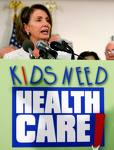 January 26, 2009 - Congress prepares to again consider raising the federal tax on cigarettes by 61 cents a pack of cigarettes — from 39 cents to $1 — to cover an additional 4 million children under the State Children’s Health Insurance Program (SCHIP). President George W. Bush vetoed that increase in 2007.
January 26, 2009 - Congress prepares to again consider raising the federal tax on cigarettes by 61 cents a pack of cigarettes — from 39 cents to $1 — to cover an additional 4 million children under the State Children’s Health Insurance Program (SCHIP). President George W. Bush vetoed that increase in 2007.
The American Cancer Society Cancer Action Network says the federal tax increase “would prevent more than 900,000 smoking-related deaths and deter nearly 1.9 million U.S. children from becoming lifelong tobacco users.”
Reference: Kaine plan for budget could curb smoking by Tyler Whitley, Media General News Service, NewsVirginian.com, 1/25/2009.
Archive of Supporting Documentation: NATO - reauthorize SCHIP without imposing tax increases on tobacco products..; U.S. Senate Committee Votes to Expand SCHIP..; SCHIP Expansion approved by U.S. House of Representatives..; U.S. Congress gets ready to pass expansion of SCHIP..;
SCHIP expansion legislation time to try again..;
Congressional Democrats have scrapped plans for another vote on expansion of the SCHIP..
AWMA urges grassroots effort to defeat FDA tobacco regulation and SCHIP..
U.S. Federal tax increase on tobacco - try it again..
U.S. House fails to override SCHIP expansion veto..
Congress Sends An Extension of the SCHIP to President Bush..
Bush vetoes 2nd bill expanding the State Children's Health Insurance Program (SCHIP)...
Revised State Children's Health Insurance (S-CHIP) Bill..
Bush's SCHIP veto stands..
U.S. CONGRESS PASSES CHILDREN'S COVERAGE..
US edges closer to federal tax hike on tobacco products...
Lawmakers in Washington are working to reauthorize the State Children's Health Insurance Program (SCHIP) before it expires on September 30, 2007...
Read more...
Virginia - cigarette sales declined after tax hikes..

January 26, 2009 - As Gov. Timothy M. Kaine seeks to double the state’s tax to 60 cents on cigarettes to get more money for health care, state statistics show that cigarette sales declined after the previous two rounds of tax increases. Cigarette packs sold in Virginia in fiscal years 2004-2007 decreased from 719.6 million in 2004 to 617 million in 2005 to 597 million in 2006 and to 581 million in 2007. The state tax on a pack of cigarettes went from 2.5 cents a pack to 20 cents a pack on Sept. 1, 2004, as part of then-Gov. Mark R. Warner’s $1.4 billion tax increase. It then went to 30 cents a pack on July 1, 2005.
Del. Harry R. Purkey, R-Virginia Beach, chairman of the House Finance Committee, says the panel likely will take up Kaine’s proposed tax increase this week. He rated its chances as iffy. While he hasn’t polled the committee’s members, Purkey said, “I think it has a difficult chance of passing. It has some supporters, but there is an awful lot of opposition from the public as well as the business community.”
Altria and its Philip Morris Tobacco subsidiary, one of the area’s largest employers, oppose the increase. “We think it’s unfair to single out one industry to bear the tax burden, particularly here in Virginia where Altria is a major employer,” Phelps said. Altria and Philip Morris employ more than 5,000 people, most in the Richmond area.
According to an internal study prepared for Altria, states approved 57 excise tax increases between fiscal year 2003 and fiscal 2007. Only in 16 cases did the states’ tax revenues meet projections.
Related news briefs: Virginia Governor Kaine Proposes a 30 cent tax increase in cigarette tax...
Reference: Kaine plan for budget could curb smoking by Tyler Whitley, Media General News Service, NewsVirginian.com, 1/25/2009.
Read more...
Alberta - smoking rate at an all time low..
 January 25, 2009 - The number of smokers lighting up in Alberta is at an all-time low, according to new Health Canada statistics that show the provincial rate has dropped to its lowest level since the department began releasing figures a decade ago. The rate of Albertans aged 15 and over who smoke is 19 per cent, down from 21 per cent in 2007, according to figures released this week for the first half of 2008. When Health Canada began releasing statistics in 1999, 26 per cent of Albertans were smokers. That percentage has dropped almost steadily, barring a slight increase in 2001.
January 25, 2009 - The number of smokers lighting up in Alberta is at an all-time low, according to new Health Canada statistics that show the provincial rate has dropped to its lowest level since the department began releasing figures a decade ago. The rate of Albertans aged 15 and over who smoke is 19 per cent, down from 21 per cent in 2007, according to figures released this week for the first half of 2008. When Health Canada began releasing statistics in 1999, 26 per cent of Albertans were smokers. That percentage has dropped almost steadily, barring a slight increase in 2001.
New provincial legislation --including the January 1, 2008, ban on smoking in all bars across Alberta-- is part of the reason for that decline, according to Les Hagen of Action on Smoking and Health. Calgary had already implemented a ban on smoking in bars the year before.
Officials hope those numbers will continue to drop as more aspects of the Tobacco Reduction Strategy are implemented, such as the January 1, 2009, requirement that pharmacies and grocery stores where pharmaceuticals are sold are no longer allowed to sell cigarettes. Tobacco sales are also banned at hospitals, universities and colleges.
Youths are the largest consumers of flavoured cigarillos, which are packaged in single tubes, said Canadian Cancer Society spokes-woman Angeline Webb.
The organization is calling for a ban on flavoured tobaccos, backing a private member's bill expected to be raised during the spring session by Calgary-Egmont MLA Jonathan Denis.
The rate of Alberta youths smoking is "worrisome," Webb said, noting that this province has the second-highest rate in Canada, after Saskatchewan.
Reference: Anti-tobacco initiatives cut smoking rate to new low, Gwendolyn Richards, Calgary Herald, 1/23/2009.
Related news briefs: Alberta - tobacco banned in pharmacies and grocery stores..; Alberta tobacco reduction strategy is working..; Smoking rampant among pregnant women in Alberta..;
Conflict Exists With the Acceptance of Tobacco Industry Money..;
duMaurier SNUS - Comments Regarding Smokeless Tobacco from Dave Hancock, Minister of Health & Wellness, Province of Alberta, Canada..; duMaurier SNUS - Edmonton, Alberta - Imperial Tobacco Canada..; We need more tobacco like a hole in the head - the world does not need: smokeless, chewless and spitless tobacco.;
Tighten restrictions on all tobacco advertising..
Read more...
Indonesia - Ulema Council - debate results is split on smoking..
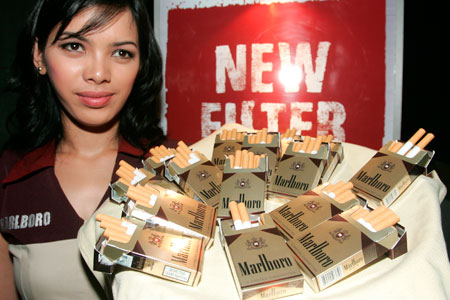 January 25, 2009 - Indonesia Ulema Council (MUI)’s (Indonesia Ulemas Council (quasi-government council of Muslim scholars) - met in Padang, West Sumatra for the National Edict Commission meeting to debate whether to apply a blanket ban on smoking or place a more limited restriction ban on tobacco use. Religious councils in Indonesia had previously agreed to ban smoking by children and in public areas, but have not implemented this and stopped short of a total ban.
January 25, 2009 - Indonesia Ulema Council (MUI)’s (Indonesia Ulemas Council (quasi-government council of Muslim scholars) - met in Padang, West Sumatra for the National Edict Commission meeting to debate whether to apply a blanket ban on smoking or place a more limited restriction ban on tobacco use. Religious councils in Indonesia had previously agreed to ban smoking by children and in public areas, but have not implemented this and stopped short of a total ban.
The debate over smoking revealed a split between those wanting to make it 'Haram," or not allowed, and others who favor a "makruh," an Arabic term whereby it would only be advised that smoking is bad and it is better to drop it.
Officially secular, Indonesia has the world's largest Muslim population, accounting for roughly 85 percent of the country's 226 million people. Indonesia is the world's No. 5 tobacco market and at around one dollar (73 pence) a pack, cigarettes are among the cheapest in the world.
Members of Kudus Community had already agreed to reject MUI's guidance on smoking.
Kudus is a regency (Indonesian: kabupaten) in Central Java province in Indonesia. Its capital is Kudus, located in the east of Semarang, capital of Central Java.
Kudus is considered the "birthplace" of the kretek clove cigarette, which is by far the most widely-smoked form of tobacco in the country. Haji Jamahri, a resident of the city, invented them in the 1880s, and the city remains a major center for their manufacture.
Reference:
Indonesia Islamic body to mull ban on smoking, yoga by Olivia Rondonuwu, Reuter, 1/23/2009; Islamic body opts not to ban smoking in Indonesia by By Olivia Rondonuwu, Reuter = Forbes.com, 1/25/2009.
Related news briefs: In Process - Indonesia - Withdraw Sponsorhip of Another Rock Concert..; Indonesia to increase tax on tobacco products..; Semarang, Indonesia - Cigarette Smoking Areas to be Prepared..; Jakarta, Indonesia - Malls help enforce non-smoking ban..; Indonesia - federal anti-smoking laws in one year - MAYBE..; Indonesia - NGO's (non-government organizations) Demand the Government Ratify WHO's FCTC.; Indonesia to raise cigarette tax by 6 to 7% in 2009..; Surabaya, Indonesia - anti-smoking bylaw 10/2009 - FOR REAL??; Indonesians smoking more than ever before..; Indonesia further rise in the excise tax would hurt the cigarette industry..; Alicia Keys - Jakarta Concert (July 31st) tobacco companies forced to withdraw sponsorship.. and Most Indonesians support moves to ban tobacco advertisements...
Read more...
U.S.A. Fire-Safe Cigarettes for All 50 States - NOW..
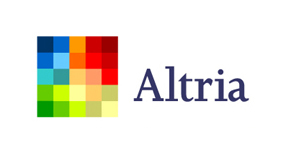
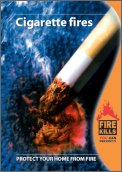 January 25, 2009 - Philip Morris USA is preventing all 50 States from having fire-safe cigarettes for consumption. According to the
January 25, 2009 - Philip Morris USA is preventing all 50 States from having fire-safe cigarettes for consumption. According to the
U.S. Fire Administration, almost 1,000 smokers and non-smokers die annually in home fires caused by cigarettes and other smoking products. Going to fire-safe cigarettes will save lives and prevent injuries and devastation from cigarette-ignited fires. Everyday people continue to die from fires caused by tobacco smoking.
By the end of 2009, 14 states will join the 18 that already require vendors to purchase and sell only the fire-safe cigarettes - that will make 32. Why do we have to wait for each state to go through the long drawn out process of passing legislation and then waiting many months for the law to be enacted. We only have to convince one corporate giant - the biggest cigarette maker in the U.S.A. - Philip Morris USA, Inc.
Altria Group, Inc. , the parent of Philip Morris has tried hard to convince people they are credible and are a good corporate citizen. But lately certain corporate decisions have been questioned such as in October 2008, Breast Cancer Awareness Month, Philip Morris marketed Virginia Slims with a slender "purse pack" in the same color of soft pink associated with the cancer campaign. Here's a chance for Altria Group to redeem themselves and re-establish their good citizenship.
R.J. Reynolds Tobacco has stated that it will start making all of its cigarettes fire-safe by the end of 2009. Reynolds makes up around 30% - one out if every three cigarettes of the domestic cigarette market. (NFPA applauds Reynolds American Inc. announcement of product-wide switch to “fire-safe” cigarettes Urges other tobacco companies to follow, National Fire Protection Assoc. 10/25/2007)
Liggett Group (with around two percent of the domestic market), announced on March 25, 2008 that it will convert all of its domestic (US) cigarette production standards to meet all state fire safety standards by January 2009. Now if Philip Morris, with over 50% of the domestic cigarette market would agree to start making all of its cigarettes fire-safe all other cigarette makers like Lorillard (with around 10 percent of the cigarette market) would join in.
Just think: then every state in the union would only sell fire-safe cigarettes.
Some related news briefs: USA States Self-extinguishing Cigarettes Becoming the Norm..; Dummies - Citizens Against Fire Safe Cigarettes..; Cigarettes “fire safe” in Minnesota as of December 1, 2008..; Fire - Safe Cigarettes for all 50 states - NOW.. and Switzerland could join EU requiring sale of only self-extinguishing cigarettes..
News on fire-safe cigarettes..
Read more...


To Provide Public Awareness
Purpose
About Us
Contact Us
2008 HIGHLIGHTS
TOPIX PAPERS - 2008 & 2009..
Archive
-
▼
2009 (1446)
-
▼
01/25 - 02/01 (23)
- Hong Kong - after smoking ban cigarette consumptio...
- Connecticut Cracks Down on Teen Smoking..
- Swedish Match Longhorn MST sponsor NASCAR events..
- February 2009 - legislation FDA to regulate tobacco..
- U.S. Senate's Version of the Economic Stimulus Bil...
- Mississippi - tobacco tax increase may pass this t...
- Virginia House Finance Committee defeats tobacco t...
- Malaysia - slowdown in cigarette consumption..
- U.S. Senate passes SCHIP..
- PM USA - discontinues Marlboro Moist Snuff & reva...
- In Process - Altria's 2008 Full Year & 4th Quarte...
- A final vote on SCHIP is expected today - Thursday...
- Jordan - law to ban smoking in public places - ENF...
- In Process - Comments..
- Indonesia - tobacco farmers reject Islamic counci...
- Philip Morris USA - The Center for Research & Tech...
- United States - using smokeless tobacco does not h...
- Why does R.J. Reynolds Tobacco keep on selecting ...
- SCHIP federal tobacco tax increase will deter near...
- Virginia - cigarette sales declined after tax hikes..
- Alberta - smoking rate at an all time low..
- Indonesia - Ulema Council - debate results is spli...
- U.S.A. Fire-Safe Cigarettes for All 50 States - NOW..
-
▼
01/25 - 02/01 (23)